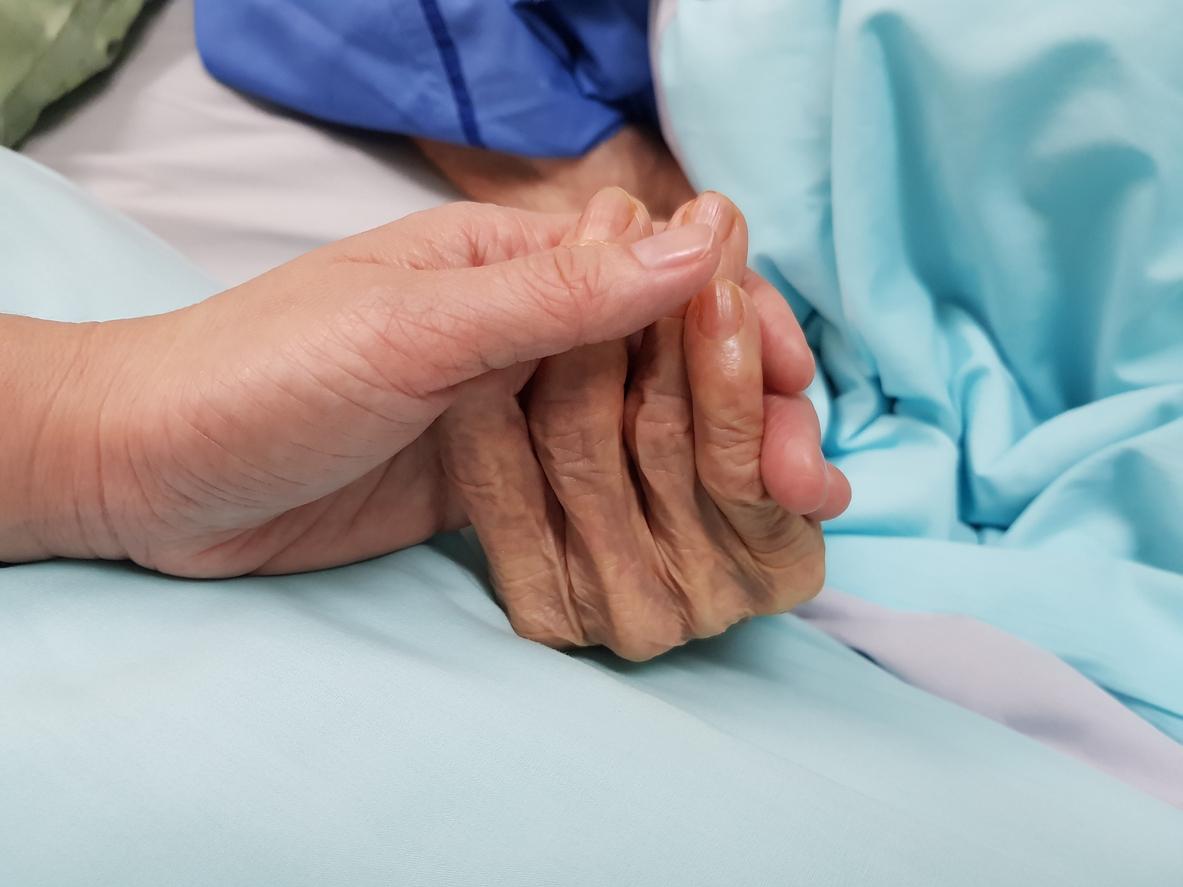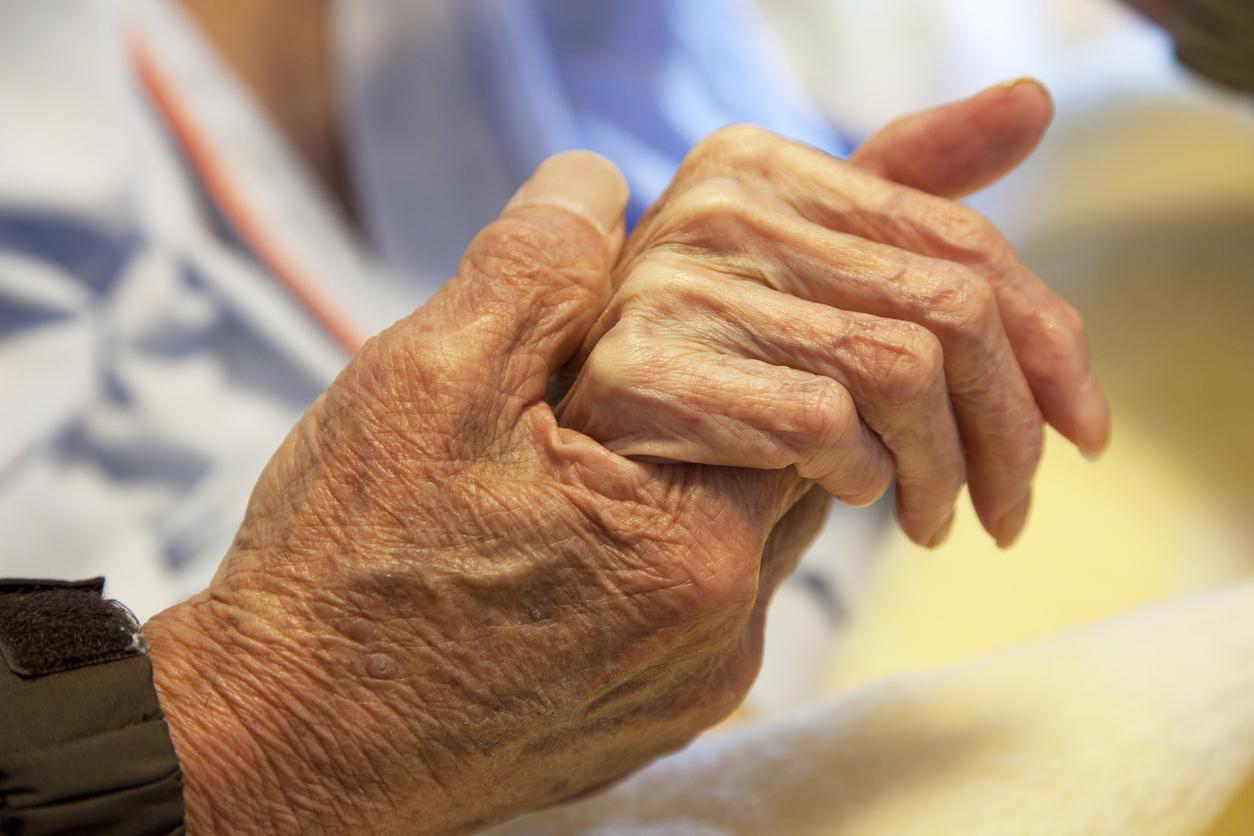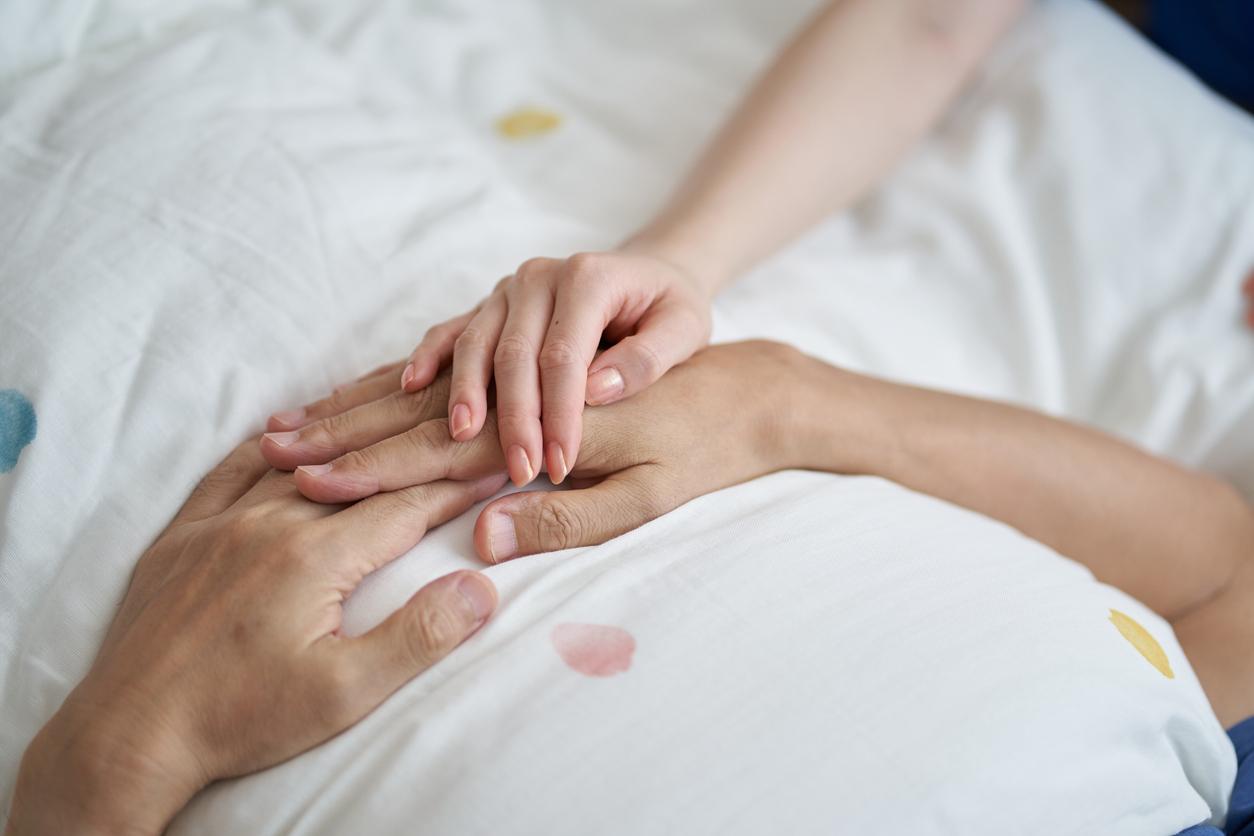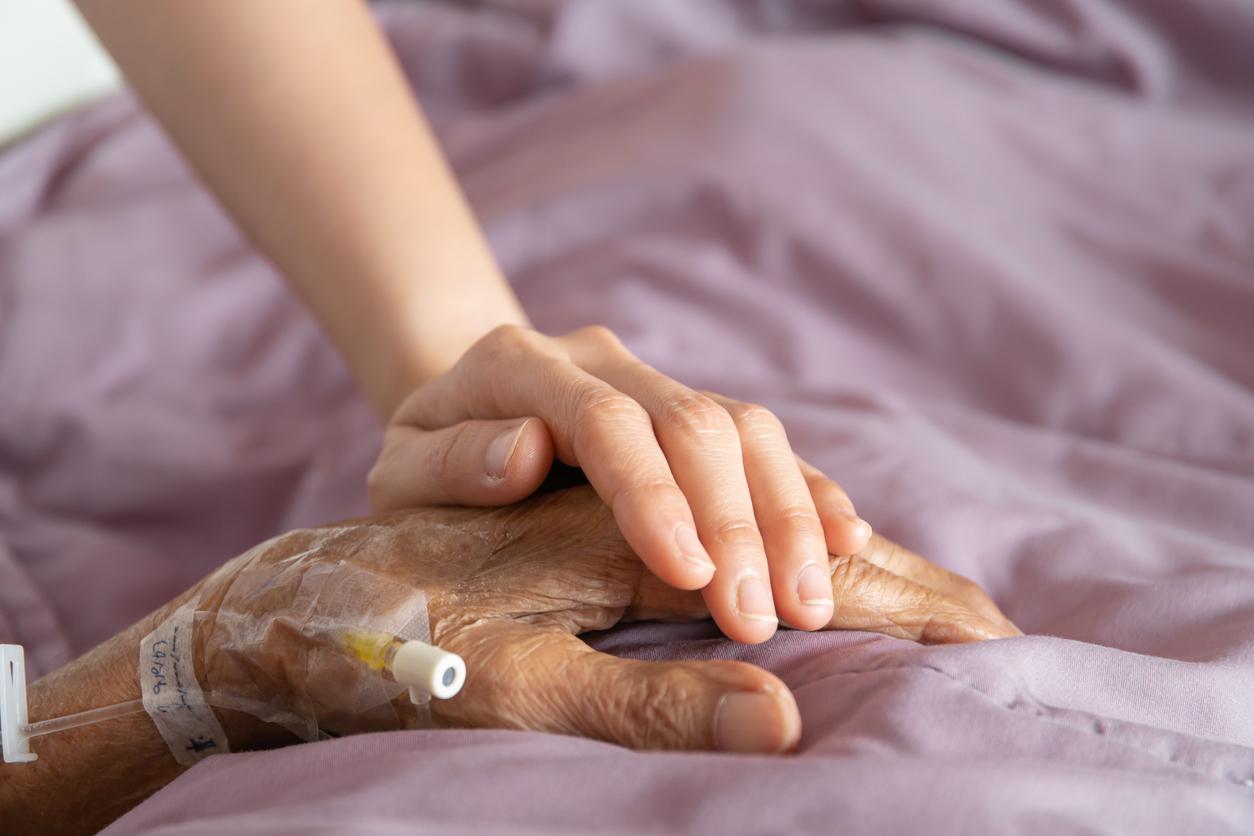Emmanuel Macron spoke this Monday morning after receiving the participants in the Citizens’ Convention on the end of life, which spoke out on Sunday for “active assistance in dying”, but under conditions.

- The President received this Monday morning the 184 French people drawn for the Citizens’ Convention on the end of life, which had voted 76% in favor of active assistance in dying last Sunday.
- He said he wanted a bill “by the end of the summer” but did not commit to taking up the recommendations of the 184 drawn.
- While he said he wanted to strengthen access to palliative care with a ten-year plan, he remained evasive on active assistance in dying, declaring only that the framework set by the citizens’ convention should serve as “red lines”.
It is now up to the president to decide. After the end of the work of the Citizens’ Convention on the end of life, which came out in favor of the establishment of “active assistance in dying” under important conditions this Sunday, April 2, the file returns between the hands of President Emmanuel Macron.
The Head of State received this Monday from 9 a.m. the 184 French people drawn for this convention and returned during a speech on his intentions. He said he wanted a bill”by the end of summer 2023” but did not undertake to take up the recommendations of the 184 drawn by lot. On the merits, Emmanuel Macron remained quite cautious. Although he declared that he wanted to strengthen access to palliative care with a “national ten-year plan for pain management and palliative care” which will be accompanied by “necessary investments”he remained evasive on active assistance in dying, stating only that the framework set by the citizens’ convention should serve as “red lines“.
76% of citizens in favor of active assistance in dying
Emmanuel Macron has been thinking about reviewing the current legislative framework and the Claeys-Leonetti law of 2016 for a while, as explained by AFP. This allows caregivers to irreversibly sedate patients close to death, whose case is hopeless and whose suffering is intolerable. But it does not go so far as to authorize active assistance in dying, i.e. an act of euthanasia or assisted suicide (for which, unlike euthanasia, it is the person -even who performs the fatal gesture, and not a third party).
A majority of citizens of the convention rightly pleaded to open this possibility, in the manner of what the National Consultative Ethics Committee for Life Sciences and Health (CCNE) had already advocated last September. But it is a kind of “yes but”, dependent on the fact that the patient must first benefit from in-depth support, and that he was able to express his wishes at any time. “The discernment of the person is an essential condition”says the report.
In detail, 76% of citizens are therefore in favor of this active assistance in dying while 23% remain opposed to it. In this majority, we find a large proportion of people (40%) considering that assisted suicide and euthanasia should be proposed indiscriminately, while for another segment (28%) assisted suicide should prevail and euthanasia should remain a exception, in particular in order to avoid excessive involvement of caregivers who do not want to be associated with such an act deemed contrary to their mission.
Euthanasia or assisted suicide for minors: opinions are very divided
On the other hand, the 184 members of the Convention failed to agree on certain thorny questions. What to do when a patient is no longer able to say what his choice is? On this subject, in the absence of a majority position, the agreement does not decide. And it’s the same thing on a very sensitive aspect: the opening of euthanasia or assisted suicide to minors. “Opinions remain very divided” on this, summarizes the final text.
Beyond this very sensitive issue of active assistance in dying, the Citizens’ Convention also makes numerous recommendations for developing palliative care. The government has planned to insist on this point, since Agnès Firmin Le Bodo, Minister Delegate in charge of Territorial Organization and Health Professions, is expected on the subject by the summer. A report from the Court of Auditors is also planned.
Emmanuel Macron’s position will also be scrutinized through a political prism. “It is time for the voice of citizens to be fully taken into account”urged the spokespersons of the Citizens’ Convention. The fate of the work of the previous Citizens’ Convention – on the Climate – had aroused many criticisms after the rejection of several proposals. This time, the Head of State had taken care to warn that he was not undertaking to resume the work of the 184 French people drawn by lot. “What matters to these citizens is that their conclusions are taken into consideration and that we explain how they are translated or not”we insist at the Elysée, which wants to see in this new experience “the sustainability of a new democratic tool”.

















